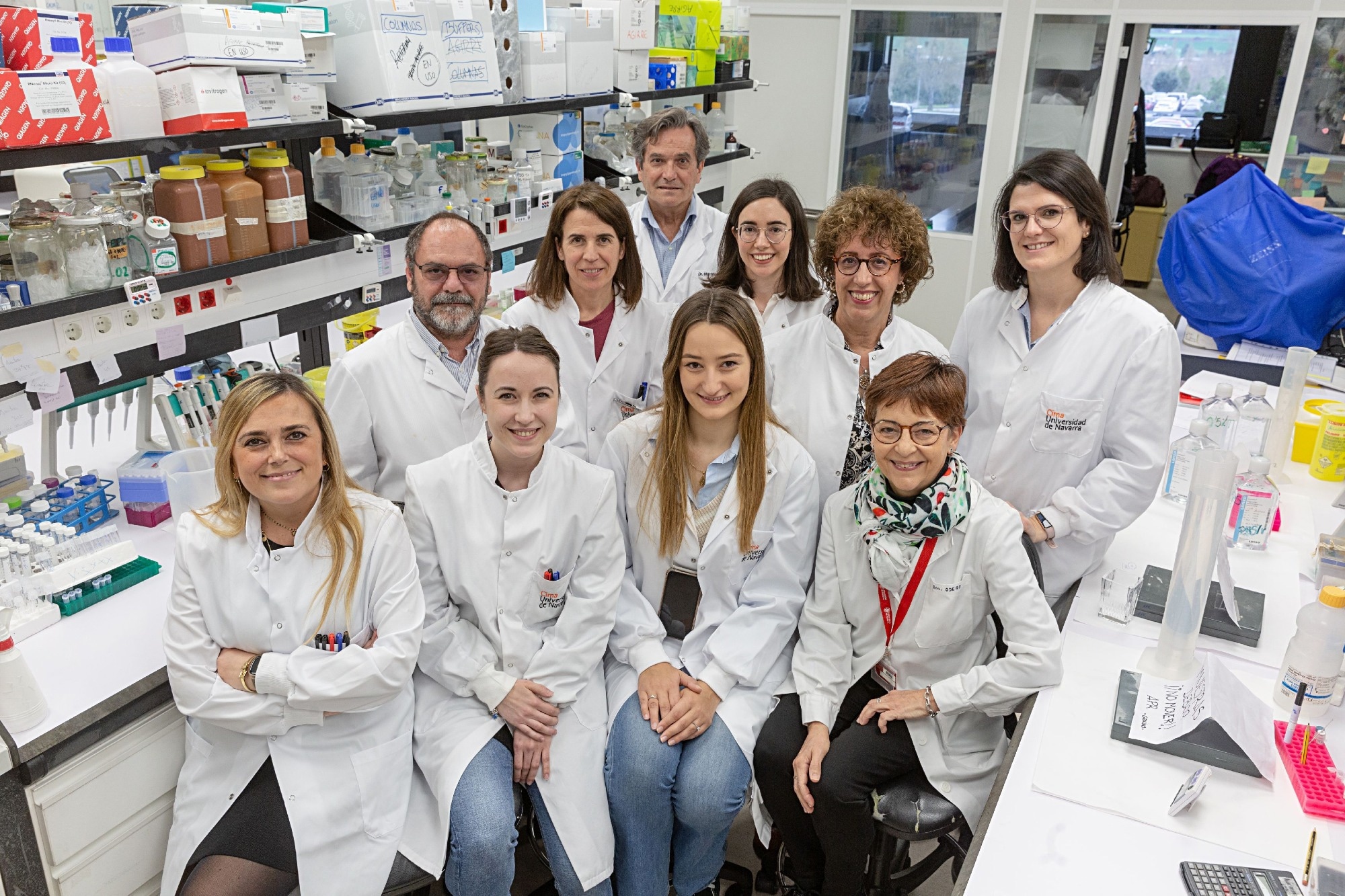Acute myeloid leukemia (AML) is a very aggressive disease in which cells proliferate abnormally, invading the bone marrow and interfering with normal blood cell production. It is the most common acute leukemia in adults with the worst prognosis. In recent years, new drugs have been approved; however, obtaining a prolonged response to treatment remains challenging.
 Front: Carmen Vicente, Silvia Romero, Irene Peris, Maria Dolores Odero. Back: Vicente Fresquet, Nerea Marcotegui, Jose Angel Martinez Climent, Andrea Torres, Maria Del Carmen Mateos, Cristina Alburquerque (absent), and Elena Arriazu, from the Cima University of Navarra and the University Hospital of Navarra. Image Credit: Cima University of Navarra
Front: Carmen Vicente, Silvia Romero, Irene Peris, Maria Dolores Odero. Back: Vicente Fresquet, Nerea Marcotegui, Jose Angel Martinez Climent, Andrea Torres, Maria Del Carmen Mateos, Cristina Alburquerque (absent), and Elena Arriazu, from the Cima University of Navarra and the University Hospital of Navarra. Image Credit: Cima University of Navarra
Researchers from the Hemato-Oncology Program have proposed a new approach for developing more effective therapeutic strategies for this disease.
PP2A is a protein that regulates essential functions in the cell, such as cell survival and proliferation. It is known to promote cancer cell death. In previous studies, we demonstrated that this protein is inactivated in 70% of AML patients and developed novel drugs to activate it. On this occasion, we confirmed that re-activating PP2A is important in response to treatment of this leukemia."
Dr. María Dolores Odero and Dr. Carmen Vicente, Directors of the Study, and Researchers in the Hemato-Oncology Program, Cima, Part of the Cancer Center Clínica Universidad de Navarra
Blood, the American Society of Hematology scientific journal, publishes its results.
The study demonstrates that the combination of PP2A activator drugs with those used in the clinic to treat this disease (venetoclax and azacitidine) has a synergistic effect and significantly increases the response to treatment in preclinical models of this disease. "These results have been confirmed in cell lines, in primary patient samples, and by xenograft (transplantation of patient tumor tissue in an animal model)," says Irene Peris, a research trainee at Cima and first author of this work, which was part of her doctoral thesis.
New safer drugs
In addition, using gene editing tools, the researchers identified the mechanisms by which PP2A reactivation increases cell death (called apoptosis) induced by venetoclax. These results open the door to developing future clinical studies with new, safer, and more efficient drug combinations for AML patients.
The work, carried out in collaboration with the University Hospital of Navarra, in the framework of the Cancer Center (CIBERONC) and the Institute for Health Research of Navarra (IdiSNA), has received funding from the Carlos III Health Institute, the Spanish Association Against Cancer and the "la Caixa" Foundation.